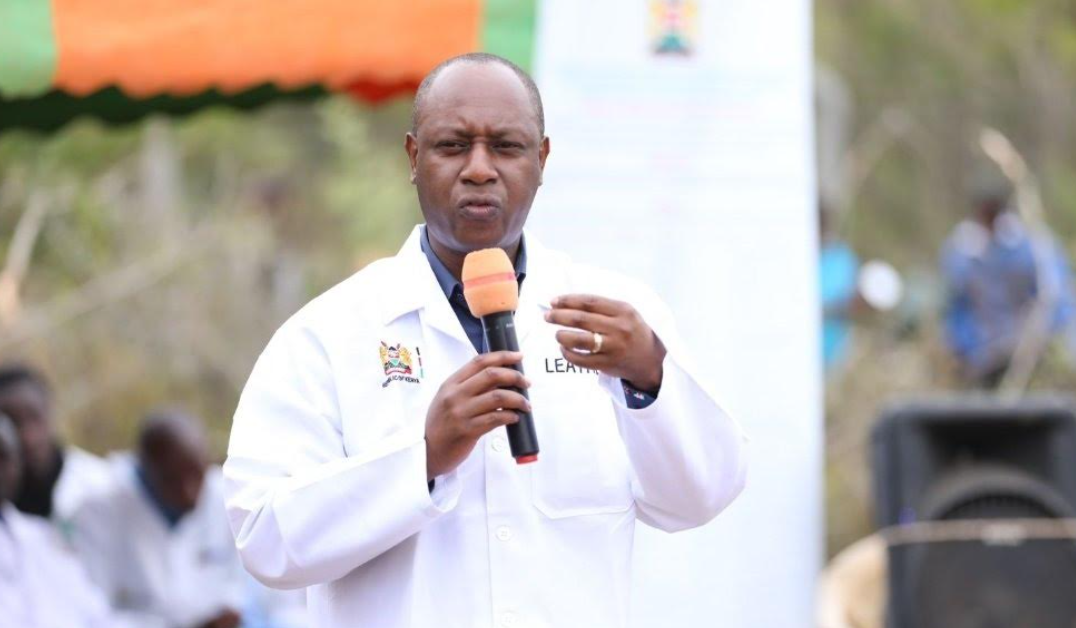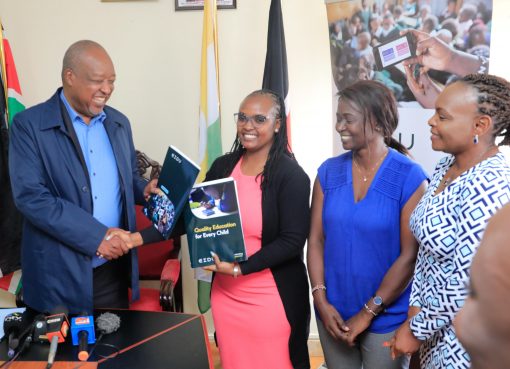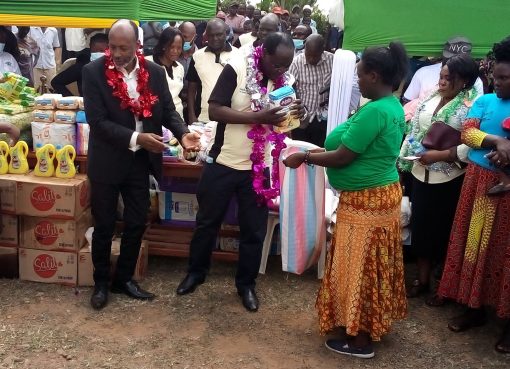The Ministry of Agriculture and Livestock Development will, from January 2025, distribute over 230 milk coolers to 41 counties in efforts to reduce the loss of milk, which is highly perishable.
State Department for Livestock Development Principal Secretary (PS) Jonathan Mueke said that the 230 coolers are currently being manufactured, and they will go to 41 major milk procuring counties, an initiative which will benefit farmers and milk cooperatives.
Addressing the media in Nairobi, Mueke explained that the coolers are of different sizes, ranging from 1,000, 2,000, 5,000, and 10,000 litres, and this will assist the farmers in reducing loss of milk and increasing their income.
“Out of the 5.2 billion litres of milk that we are producing annually, about 811 million litres are formally marketed through processors, and the coolers project will add another 400 million litres of processed milk, which is a 50 per cent increase,” said Mueke.
He highlighted that jointly with the County Governments, 544 milk cooler sites have been identified, out of which 427 sites in 40 counties have been verified. Of the verified sites, 285 are ready for milk cooler installation.
He added that at the State Department there are several other programmes which are ongoing, and they are targeted at commercialising the livestock sector and improving the production of the five livestock products, which are meat, milk, honey, eggs, and leather.
On leather, the PS said that the Kenya Leather Industrial Park in Kenanie will be coming up by May 2025 as it is 85 per cent complete, and it will be Kenya’s leather district.
“Currently our leather is attracting international luxury fashion brands like Louis Vuitton, Gucci, and Chanel, and we want to expand that. As a Ministry we have a vision to have those luxury brands come and manufacture in Kenya,” said Mueke.
He said that this will be made possible by capitalising on the Special Economic Zones (SEZ) and Export Processing Zones (EPZ) and all the tax concessions as incentives for companies to come and set up business there.
“We did an expression of interest, and we have about 34 investors around the world who want to come and set up their leather factories here, and we are very excited about the project,” said Mueke.
The government is investing in the Kenya Leather Industrial Park and promoting footwear production, aiming to increase output to 36 million pairs annually. By improving the leather value chain, the government expects to create tens of thousands of jobs and increase revenue from Sh15 billion to Sh120 billion by 2027.
The PS added that they are also undertaking a livestock restocking project expected to kick off in January 2025, and they are currently buying the animals, that is, 55,000 sheep and goats, which will benefit 10,000 households in 16 counties which were hardest hit by drought and floods.
“The Ministry has been allocated Sh1 billion for the project; we will be distributing the livestock in January to ensure that we restore the livelihoods of the affected families,” said the PS.
On the National Vaccination programme, Mueke said that the exercise is purely a food safety measure, as he explained the government does not want its citizens to be consuming meat and other livestock products from infected animals.
“The vaccination has nothing to do with Bill Gates since all the vaccines will be produced locally by the Kenya Veterinary Vaccines Production Institute (KEVEVAPI),” said the PS.
Mueke said that the vaccination is also for trade purposes, where they undertook a route-to-market study which indicated that unless we have quality products in the required quantities, we cannot access international livestock markets.
“President William Ruto has been our top salesman, and he has been able to open up 27 countries in Europe through the Economic Partnership Agreement worth around 13 trillion Euros. He has also opened up the American market, where we will be signing the Strategic Partnership and Investment Programme around January 2025, and agriculture is one of the chapters which will be looked at,” said the PS.
Mueke said that Kenya has also managed to open up the United Arab Emirates (UAE) market through the Comprehensive Economic Trade Partnership, and these three regions are almost one third of the world’s Gross Domestic Product (GDP), and we must have products to push through them because the markets are open and they demand that our food is safe.
By Joseph Ng’ang’a





